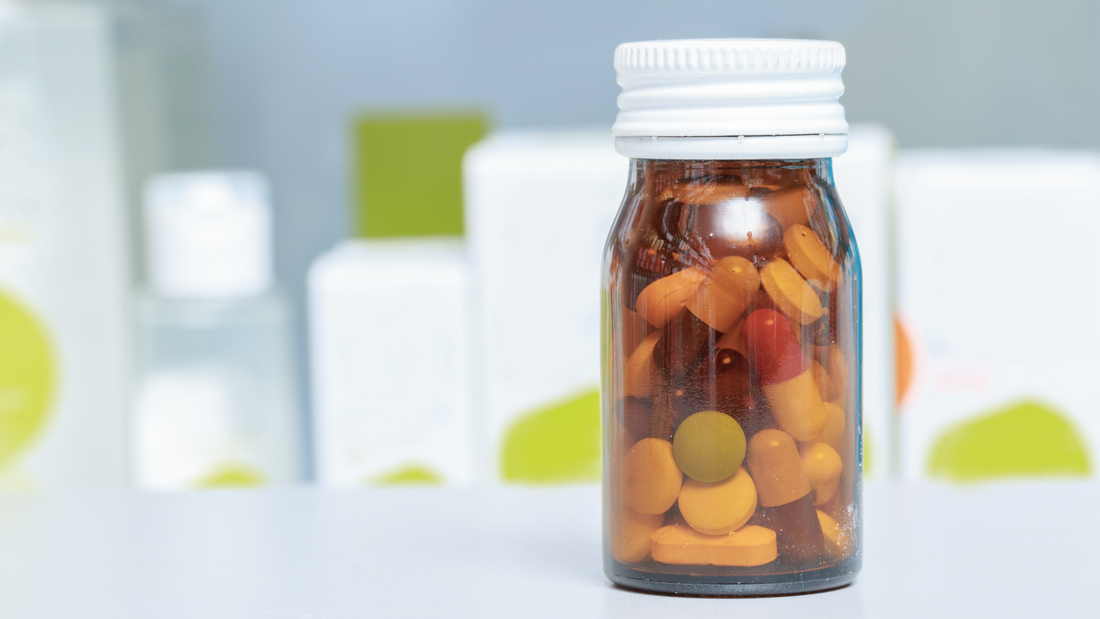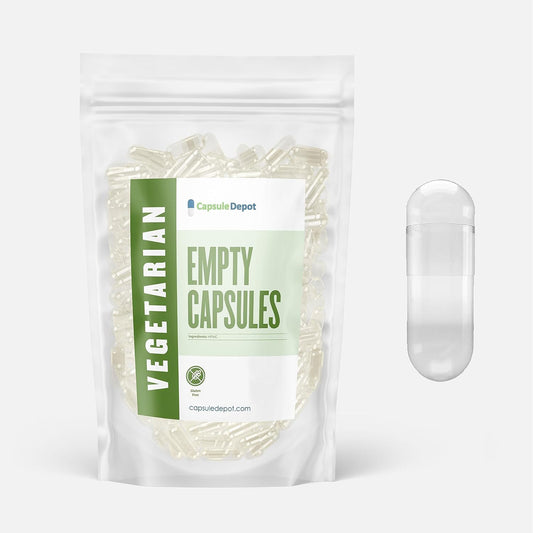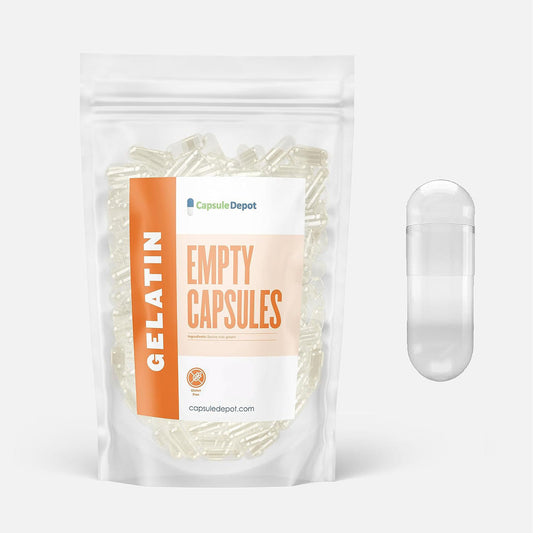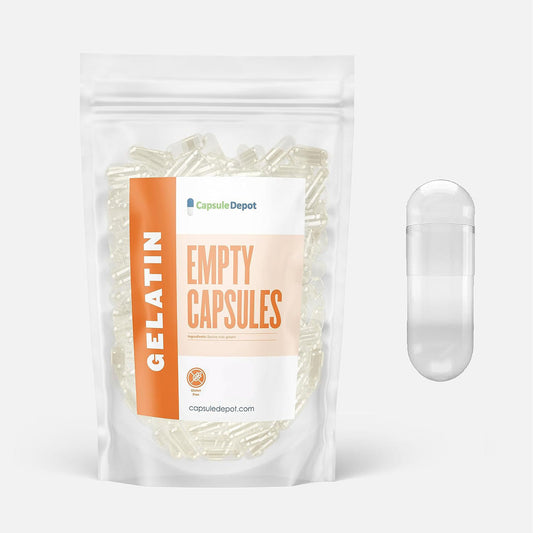Introduction
Supplementation is a significant investment in our good health. And the benefits we seek can only be realized using a stable, quality product. However, purchasing a quality and reliable brand goes only halfway to this goal; storing the supplement properly to maintain its potency during use completes this puzzle.
So, what is the proper way to store your supplements at home to maximize their potency and benefits?
In this article, we share our top 10 tips for storing your supplements correctly to keep their potency and quality and why this is important.
Why Proper Storage is Crucial for Supplement Potency
Supplements contain various chemical and biological ingredients like vitamins, minerals, probiotics, and organics. These ingredients are known to be sensitive to adverse environmental conditions such as intense sunlight, or too high or too low temperature and humidity.
For example, in one study, temperature fluctuations and relative humidity levels above 80% in the storage area accelerated the degradation of Vitamin C through forced dissolution. Another study showed similar effects using powdered blends of the B vitamins and vitamin C.
Similarly, the dosage systems holding these ingredients, such as capsules, can be affected by excessive moisture, high temperature, and air oxidation. Capsules may stick, clump together, or react with their fills under poor storage conditions, thereby affecting their functions. These conditions also impact the stability and shelf-life of the products.
Thus, storing supplement products under optimal conditions— that ensure the stability of the components— is the best way to maintain their quality.

The Impact of Storage Conditions on Supplement Quality
‘Excursion’ is the term used to describe the situation where a supplement product has been stored under inappropriate conditions, especially relating to temperature and humidity.
When an excursion occurs, the quality of the product is affected. This may manifest as:
- Reduced potency or loss of efficacy: this results when the nature or amount of the active ingredients in the product is affected by changes caused by poor storage conditions.
- Loss of purity or adulteration: this occurs as byproducts of the altered ingredients form and accumulate in the product.
- Product degradation: caused by significant denaturing of the product’s components, affecting its overall stability.
- Content variations: Levels of active ingredients differ within the same batch or unit packs due to environmentally induced changes in contents.
Common Mistakes in Supplement Storage and How to Avoid Them
Mistake 1: Storing in unsuitable locations
Does it feel convenient to keep your supplements in the bathroom cabinet, kitchen, or car? Alas, these places are quite problematic locations for storing your supplement. While you may see the ease of access, you might be losing out on the supplement's potency and benefits as products tend to degrade faster in those environments. Why?
The reason is the huge temperature fluctuations and humidity changes that characterize these places which can alter the stability of a product. Temperature and humidity levels in the bathroom and kitchen vary significantly between different spots in the room and by the activities and the time of the day. Supplements can be exposed to similar extreme temperature changes in the car, whether used or parked. Hence, you might want to consider the cabinets in the bedroom, living room, or dining area that have relatively stable conditions for supplement storage.
Mistake 2: Discarding the original package
Supplement manufacturers often match the packaging material to the final product characteristics to give adequate protection and maintain the product quality throughout its shelf life. Discarding this package and switching to a lesser-grade package for other reasons may affect the product during storage.
Mistake 3: Refrigerating everything
While some supplements like probiotics and cod liver oil store better in the refrigerator, a larger proportion of supplements, especially tablets and capsules, do better in ambient (cool and dry) conditions. The high moisture levels that sensitive products are exposed to in the fridge may cause their degradation.
Mistake 4: Using low-grade DIY supplement capsules
If you are making your own capsule supplements at home, it is essential to use high-quality and appropriate empty capsules to ensure that the supplements store well and maintain their quality over time.
The ideal capsule type should have adequate sealing properties, moisture or air resistance, and mechanical and thermal stability that match the nature of the ingredient fills.
You can get such empty capsules from Capsule Depot. Our gelatin capsules and HPMC-derived vegetarian capsules are built to specification and quality details that give you a stable and effective DIY supplement. Contact us to order in units or bulk today.

Our top 10 simple and effective tips to store your supplements to keep their potency and quality
- Store in original containers: Keep supplements in their original packaging to maintain integrity and ensure proper sealing.
- Avoid excessive heat and humidity: Store supplements in a cool, dry place to prevent degradation. An ideal storage condition should be between 59°F to 77°F (15°C to 25°C) temperature and 30-50% relative humidity.
- Refrigerate only when necessary: Keep only suitable supplements such as probiotics or fish oils in the fridge. Check the label for storage instructions.
- Seal containers tightly after use: Always close containers tightly after each use to minimize air exposure.
- Protect from light and heat sources in the home: Keep supplements away from light and heat and place them in a dark, cool place, or use opaque containers to protect them from light.
- Keep away from strong odors: Supplements can absorb odors and flavors from the environment. Store them away from strong-smelling substances like spices or cleaning products.
- Store out of reach of children: It will always remain critical to keep your supplements (and your medications) in a location that is inaccessible to children to prevent spoilage, or worse, accidental ingestion.
- Rigorously control moisture; Utilize desiccants: Keep humidity in check by using clean desiccant packs in storage and product packs, especially for capsules. In humid climates, consider a dehumidifier to keep supplements dry.
- Use travel-safe storage on trips: When traveling, use well-sealed, travel-sized containers to protect supplements from air, moisture, and temperature changes.
- Keep rotating stocks to maintain freshness: Always read and follow storage instructions and expiry dates on supplement labels. If you use multiple products or keep large stocks, monitor each product's condition. Implement a first-to-expire, first-out (FEFO) system to use or dispose of older stocks first.
Bottom line
Proper storage of supplements is crucial for maintaining their potency and safety. Best practices include keeping them in their original packaging, storing them in cool, dry, and dark places, and sealing containers tightly after each use.
It is important to follow specific storage instructions like refrigerating only when needed and keeping supplements away from heat, moisture, and strong odors.
Also, regularly inspect the supplements for signs of damage or expiration and rotate your stock to use the oldest products first. Due diligence with these practices ensures that your supplements remain effective and safe, supporting better health outcomes.





